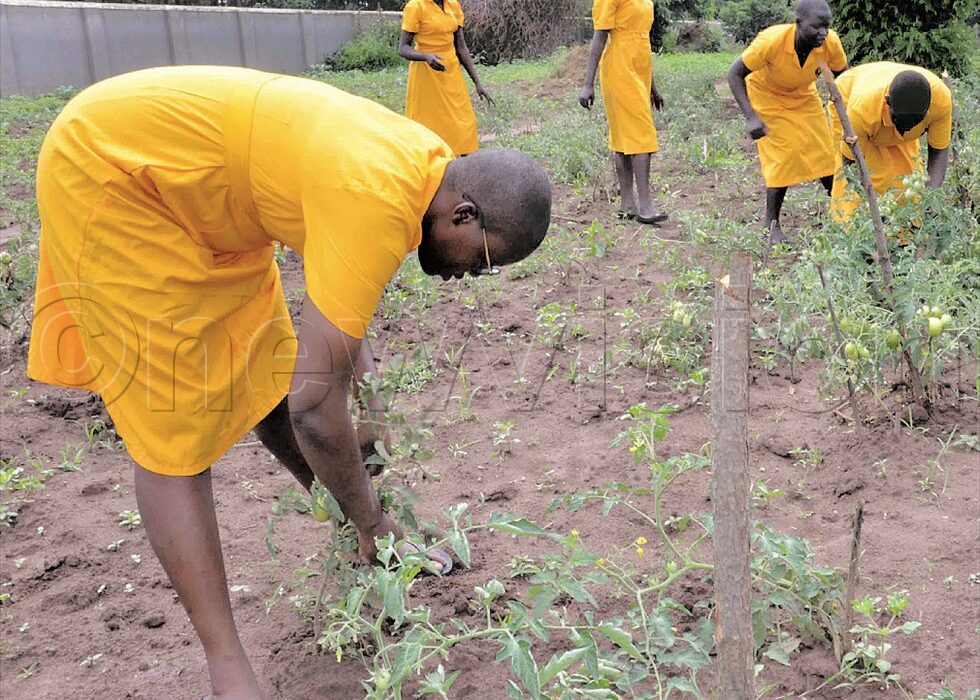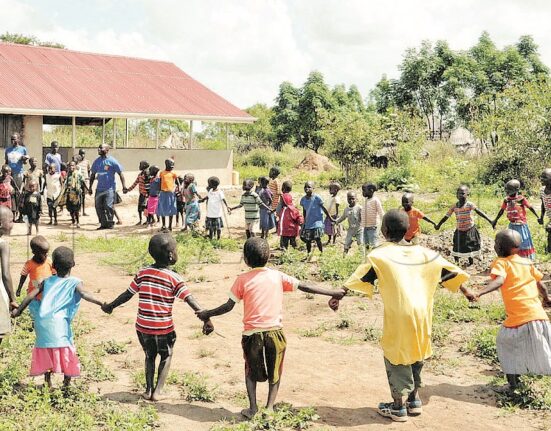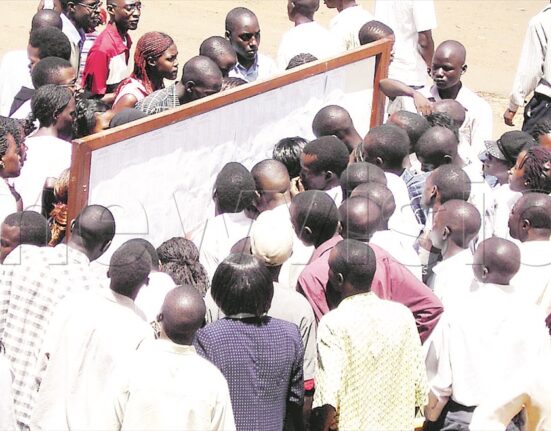(This article was first published in the New Vision on July 6, 2022)
By Patrick Okino
When Rose Nakwagala was deployed to St Katherine Girls’ Secondary School in Lira district as headteacher in 2014, she noticed that many students did not have vocational skills. So she decided to submit proposals to local and international non-government organisations (NGOs) in search for funds to set up agribusiness projects to skill them.
A year later, the Association of Volunteers International Services responded to her call and with support from this Italian NGO, in the form of funds and training, Nakwagala established mushroom, poultry, horticulture, piggery and cattle rearing projects, among others.
“The idea was to equip students skills in agribusiness while still young so that even if they do not get into formal employment after school, they have options,” Nakwagala said.
Reaping From The Projects
The projects, which sit on three acres — part of the 16 acres of the school’s land, located in Boroboro ward, East division, Lira city – currently include 300 chicken, two heifers, an indoor mushroom growing facility and a vegetable garden.
Nakwagala said the piggery project was, however, abandoned recently due to denominational reasons.
She explained that the school received one heifer as a reward after its mushroom project emerged the best during the exhibition of schools’ projects in Gayaza, Wakiso district, a few years ago.
“We beat 76 secondary schools to get the heifer,” she said.
Recently, the school received another heifer from the Government through the Operation Wealth Creation programme.
Nakwagala said the school is now one of the suppliers of chicken and milk to some hotels in Lira.
“We inject some of the proceeds from the sale of chicken and other items back into the business. We get vegetables, milk and chicken from our projects for school meals, which has greatly improved our diets,” she explained.
Some of the proceeds, she added, cover school fees for students who are actively involved in the implementation of the projects.

Parents’ Support
Nakwagala said the school also received from parents a donation of 10 acres of land in Akia ward, Lira East division, where they intend to establish a large farm and vocational training section. “I want to establish a farm that other schools can use to teach their students during study tours,” she said.
In 2016, Nakwagala set up another project to train girls in tailoring. So far, the school has seven sewing machines for training students.
Other Projects
Nakwagala recently signed a memorandum of understanding with the Association of Volunteers International Services for a sh73m tree growing project.
She explained that the association has pledged to provide sh43m for the project, while the school provides the balance. The projects, the headteacher said, have enabled her to keep girls from disadvantaged families in school by converting the proceeds from the sale of products into their school fees. She has also promoted teamwork among teachers and amicable resolution of disputes to prevent student strikes.
Online Learning
In order to prevent students from dropping out during the COVID-19 lockdown, Nakwagala said she started an online learning programme. This, however, benefited only students around the city with access to digital gadgets and internet connection.
With support from African Girls Can, an NGO, she added that sh6m was spent on facilitating teachers to deliver the online teaching programme. Meanwhile, when some students returned to school after the lockdown was lifted, Nakwagala noticed that five girls were pregnant.
She said she counselled them and three returned to school after giving birth. Nakwagala lives with one of the three girls because she was kicked out of home by her parents.
Before the lockdown, Nakwagala would follow up on students who dropped out of school.
She said she sponsored a girl who had dropped out of school due to fi nancial challenges after completing Senior Four.
“She passed her Senior Six well and is now pursuing a diploma in education on a government scholarship at Unyama National Teachers’ College in Gulu,” Nakwagala added.
She has also secured scholarships for 18 girls from World Vision, African Girls Can and Julie Desoto and Asha Platner from the United States.
Reviving MDD
Nakwagala also revived the music, dance and drama (MDD) department, which had been inactive for 11 years before deployment in 2014.
In 2016, the school participated in the East African MDD competitions after emerging among the top best Ugandan schools.
In 2017 and 2018, the school hosted the national ballgame and MDD competitions, respectively.
Alongside the agribusiness clubs, the school also has the World Starts with You, Red Cross, Entertainment, Scripture Union clubs, among others.
“The target of clubs is to bring up good citizens,” she said.
Others Speak Out
Jasper Abura, Lira education officer
St Katherine is one of the top performing government schools in the area due to good leadership and teamwork promoted by Rose Nakwagala, the headteacher.
Levi Abong, Deputy headteacher,
Nakwagala is visionary, patriotic and dedicated.
Sarah Angweri, Former student
The school’s performance has greatly improved under Nakwagala’s leadership. I am proud of the school and the leadership because, during our days, a few students would get first grade.
Fact File
- Nakwagala completed primary school at St Patrick Kigulu Girls’ in Iganga in 1977 and later joined Mt St Mary’s Namagunga in 1984. She did her bachelor’s degree in education at Makerere University in 1987, a post-graduate diploma and a master’s degree in education management, both at Makerere University, between 1988 and 2007.
- From 1989 to 2003, Nakwagala taught at Kitante Hill School before joining Entebbe Comprehensive School, where she served between 2004 and 2009.
- 2010 and 2011, Nakwagala served as deputy headteacher at Kitebi SS in Kakiri, before she was transferred to Butaleja Secondary School, where she served in the same position before joining St Katherine SS.









Leave feedback about this